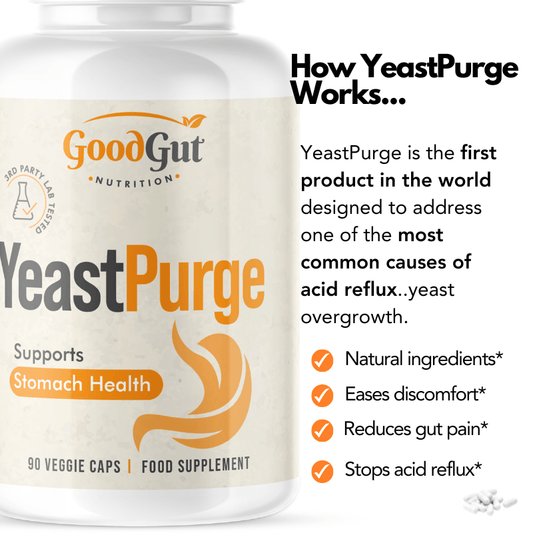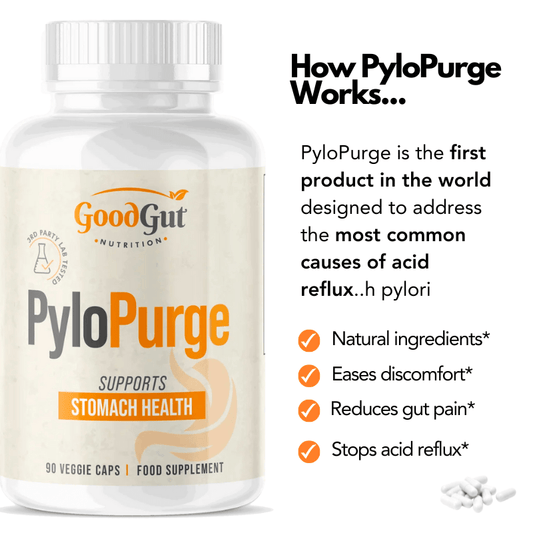1. H. Pylori Infection
Helicobacter pylori, commonly known as H. pylori, is a type of bacteria that can infect the stomach. It is estimated that about half of the world's population harbors this bacterium in their upper gastrointestinal tract. However, most people infected with H. pylori do not realize they have it because they never get sick from it. When the infection leads to an illness, it's usually either a peptic ulcer or gastric cancer.
Peptic ulcers, which are sores that develop on the lining of the stomach, upper small intestine, or esophagus, are commonly caused by H. pylori infection. The bacteria can damage the protective layer of the stomach or duodenum, which allows the acid to get through to the sensitive lining beneath. This is what leads to the development of ulcers.
Moreover, chronic infection with H. pylori can also lead to stomach cancer, specifically gastric adenocarcinoma, a common type of stomach cancer. It's believed that the inflammation caused by the bacteria can lead to changes in the stomach lining, which can result in cancer over time.
To manage the symptoms of H. pylori infection, proton pump inhibitors (PPIs) are often prescribed. These drugs reduce the production of stomach acid, which can help heal the ulcers and reduce pain. However, while PPIs can help manage the symptoms, they do not treat the underlying cause of the infection - the H. pylori bacteria itself.
2. Natural Treatment
In recent years, there has been growing interest in natural treatments for H. pylori infection. This is largely due to concerns about the side effects of conventional treatments and the increasing resistance of H. pylori to antibiotics. Several herbs have been studied for their potential to kill H. pylori or inhibit its growth.
Mastic gum, derived from the resin of the mastic tree, has been used in traditional medicine for centuries. Recent studies have shown that it has antibacterial activity against H. pylori. It's believed that compounds in mastic gum can disrupt the bacteria's ability to adhere to the stomach lining, thereby helping to clear the infection.
Broccoli sprout extract is another natural remedy that has shown promise in the treatment of H. pylori. It contains sulforaphane, a compound that has been found to have potent antibacterial activity against H. pylori. In addition, sulforaphane can also help protect the stomach lining from damage caused by the bacteria.
Curcuma longa, also known as turmeric, and Curcuma amada, or mango ginger, are both members of the ginger family and have been used in traditional medicine for their anti-inflammatory and antimicrobial properties. Curcumin, the active ingredient in turmeric, has been found to inhibit the growth of H. pylori in laboratory studies.
Nutmeg, a spice that's commonly used in cooking, also has antibacterial properties that can be effective against H. pylori. It's believed that compounds in nutmeg can disrupt the bacteria's cell membrane, leading to its death.
3. Antibiotic Resistance
The increasing prevalence of antibiotic resistance in H. pylori is a major concern. Overuse and misuse of antibiotics have led to many strains of the bacteria becoming resistant to the drugs that were once effective against them. This has resulted in falling eradication rates, with conventional treatments now failing in up to 25% of cases.
As a result of this growing problem, there has been a shift towards alternative treatments for H. pylori infection. More and more people are turningto natural remedies, not only because of the increasing resistance of H. pylori to antibiotics but also due to the potential side effects of conventional treatments. The herbs discussed earlier, such as mastic gum, broccoli sprout extract, curcuma longa, curcuma amada, and nutmeg, offer promising alternatives to antibiotics for the treatment of H. pylori infection.
4. Conclusion
In conclusion, H. pylori infection is a common and potentially serious condition that can lead to peptic ulcers and stomach cancer. While proton pump inhibitors can help manage the symptoms, they do not treat the underlying cause of the infection. With the increasing prevalence of antibiotic resistance in H. pylori, there is a growing need for alternative treatments.
Herbs such as mastic gum, broccoli sprout extract, curcuma longa, curcuma amada, and nutmeg offer promising potential as natural treatments for H. pylori infection. They have been found to have antibacterial activity against H. pylori and may help to clear the infection without the side effects associated with conventional treatments.
However, while these natural remedies show promise, more research is needed to fully understand their effectiveness and safety. As always, it's important to consult with a healthcare provider before starting any new treatment regimen.
 Sale
Sale

